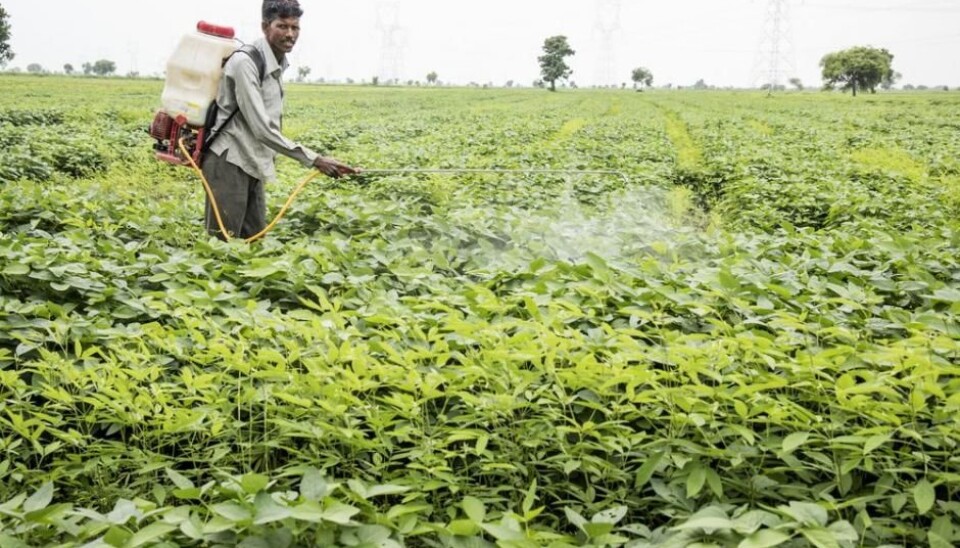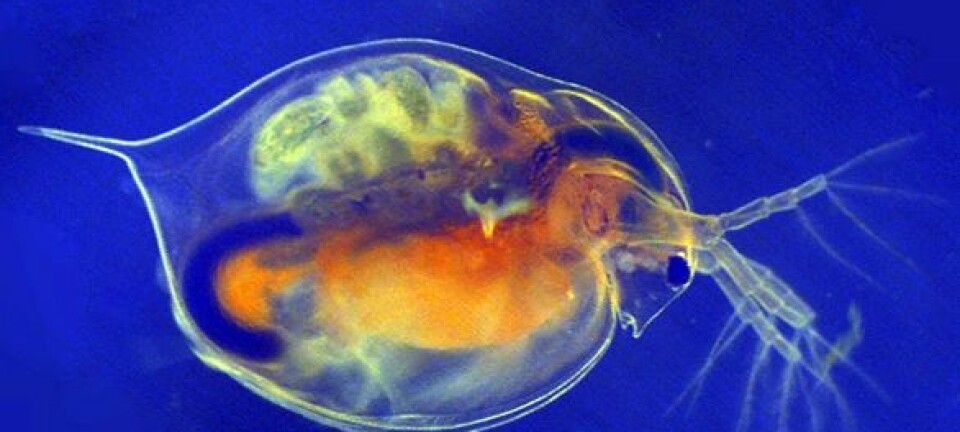
International strategy to prevent suicides from pesticide poisoning is failing
Promoting safer household pesticide storage has no effect on preventing suicides.
Every year, 150,000 people commit suicide by drinking poisonous pesticides.
Although the World Health Organisation (WHO), scientists, and industry have tried to prevent the suicides by removing pesticides from farmers’ homes and placing them in plastic barrels outside, it has done little to reduce fatalities.
A large study in Sri Lanka reveals that storing pesticides in lockable plastic barrels does not make a substantial difference to suicide statistics.
If the harvest has failed, money dries up, the partner walks out, or alcohol takes over, then people still go out and take a swig of the deadly but all too easily accessible poison.
“We’re throwing a spanner in the works for the international strategy that tries to limit suicides by storing pesticides more securely. We have to say that it simply doesn’t work,” says co-author Flemming Konradsen, a professor and head of global health section at the University of Copenhagen, Denmark.
Konradsen was himself one of the pioneers behind the safe storage strategy.
The new study is published in The Lancet.
Read More: Pesticide cocktails cause environmental risk
Solid conclusion: Barrels make no difference
A total of 180 villages in Sri Lanka took part in the study.
Half of them received plastic barrels to store pesticides, the other half—the control group—did not. In all, 114,000 people and 26,000 households took part and 20,500 plastic barrels were handed out.
During the subsequent three years, 611 people committed suicide in the group who received plastic barrels, compared to 641 in the group without any barrels.
Fewer people committed suicide in the group with plastic barrels, but not enough to make a difference to the two groups in scientific terms—and not enough to prevent the many thousands of pesticide self-poisonings around the world each year.
The study’s conclusions are firm:
“Our message is: ‘don’t repeat this anywhere else.’ It’s so clearly demonstrated at a large scale. We can’t start a new study that will take five to seven years to carry out, because hundreds of thousands of people will die before we’re finished. Instead, we should ban the most poisonous pesticides to ensure that they will not be present in the home and at the work place, just as they have been in the US and in Europe,” says Konradsen.
Read More: Young cancer survivors have twice the risk of suicide
Could cause hundreds of thousands of deaths in Africa
Konradsen highlights the potentially dangerous situation set to unfold in Africa, which is about to embark on the same growth in agriculture as Asia in the 1990’s. Farming is growing and they increasingly need pesticides as there are more and more mouths to feed.
“I work in Africa myself and trust me, the authorities and local communities are not ready to handle these insanely toxic pesticides. In Africa, most countries are totally unprepared for what’s about to hit them,” says Konradsen.
“We need to find a future for farming that eliminates the most dangerous pesticides—in partnership with governments throughout Africa. Perhaps many others can be used, but allowing the most dangerous to be sold will result in hundreds of thousands of deaths,” he says.
Read More: Snakebites still exact a high toll in Africa. A shortage of antivenoms is to blame
Suicide figures are decreasing
One piece of good news is the global number of suicides has fallen. According to figures from WHO, of the 800,000 people who committed suicide at the turn of the century, 30 per cent of them used pesticides.
Today the number of suicides is closer to 700,000 and the proportion of this attributed to self-poisoning by pesticides has fallen to 19.7 per cent, according to a study published in the Journal of Affective Disorders.
The reasons could be that countries generally use less of the most dangerous pesticides, and that far fewer people are committing suicide in China as people move into the cities where they do not have access to pesticides.
According to Konradsen, it is up to individual countries to introduce such a ban. To that end they should also receive help from research institutions and organisations around the world to find alternatives to poisonous pesticides, and to help address all of the problems that contribute to suicide.
-----------------
Read more in the Danish version of this article on Videnskab.dk
Translated by: Catherine Jex











